I have always been fascinated by gardening. You begin with a tiny seed, cultivate the ground, plant the seed, water it, nurture it, harvest it, and finally enjoy it. I think it’s because I have always been driven by the philosophy of reaping what you sow and enjoying the fruits of your labor. I was raised to appreciate the value of hard work and at the end of the day, hard work has never failed me. Gardening is a very tangible way not only for me to remember this, but also to teach it to my children.
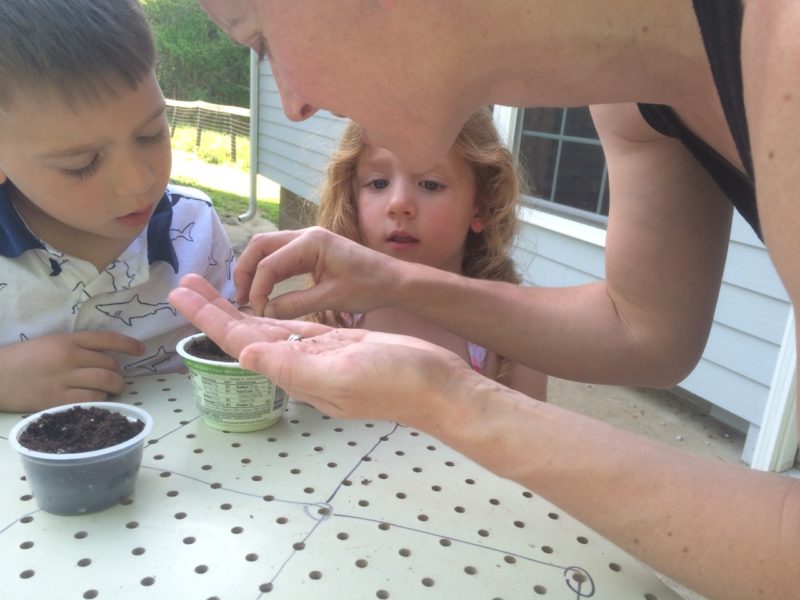
Every spring for the last 8 or 9 years I start planning a vegetable garden, picking out seeds and finding a good spot in the yard. In our first five years of marriage, we lived in 3 different homes so I was cautious not to establish anything too big because I never knew how long we would stay there. It started off as a few tomato plants, something easy my husband and I enjoyed on our summer hamburgers. When we moved back to Indiana 6 years ago, we rented a small ranch house on 1 acre and put in a few raised beds, adding zucchini, squash, eggplant, and carrots. Our kids arrived by this time and it was a joy watching them experience the process and learn real food comes from the ground, not a box. Every year we’ve added more variety.
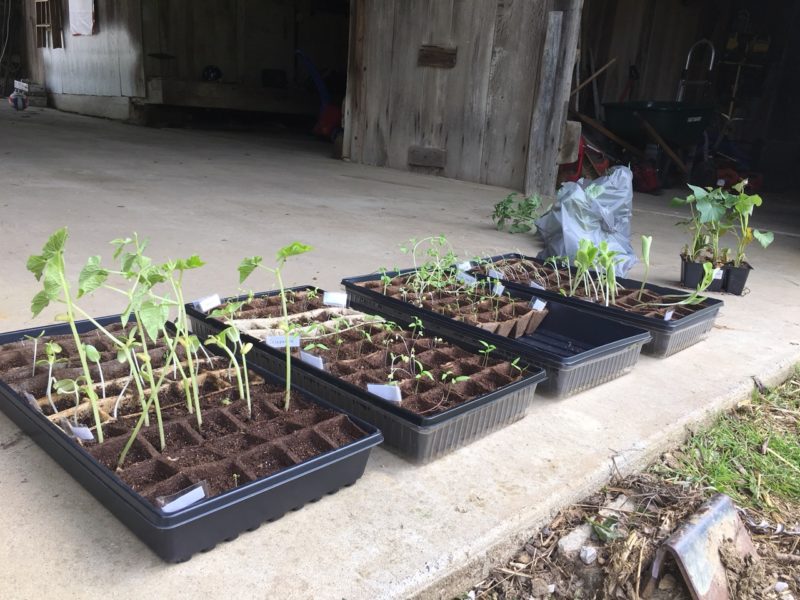
Our seeds ready to be planted, Spring 2017
I believe anyone can become a gardener, but it’s a skill you build with experience- you can’t just throw a bunch of plants in the ground and expect a beautiful harvest. My sister was a seasoned gardener so I was constantly calling her for tips and tricks about weeding, pests, harvesting, and just about everything else. When we moved to The Village Farm 2 years ago, I was ecstatic a the possibilities for our garden because we now had 4 acres to play with. The first spring we received an unusual amount of spring and early summer rain right after I planted and some of the plants didn’t fare well. The harvest was modest but still joyful.
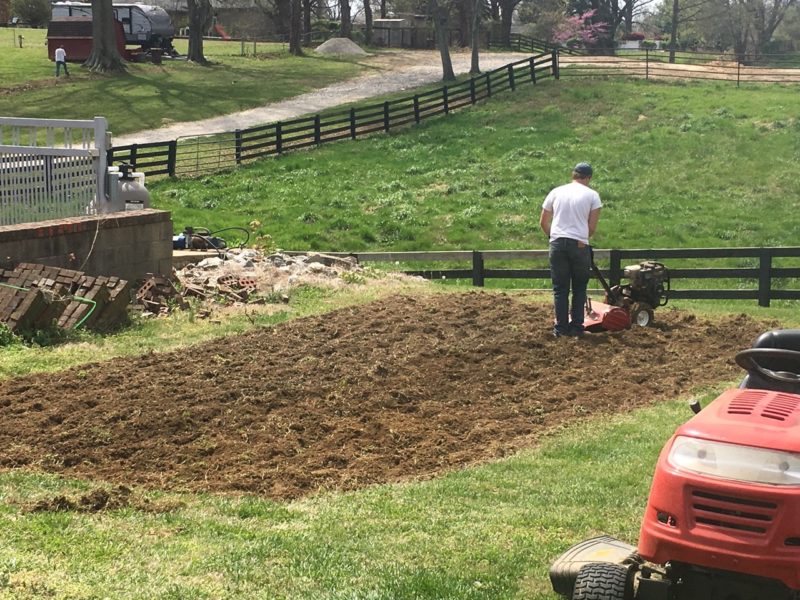
Nick plowing the garden plot
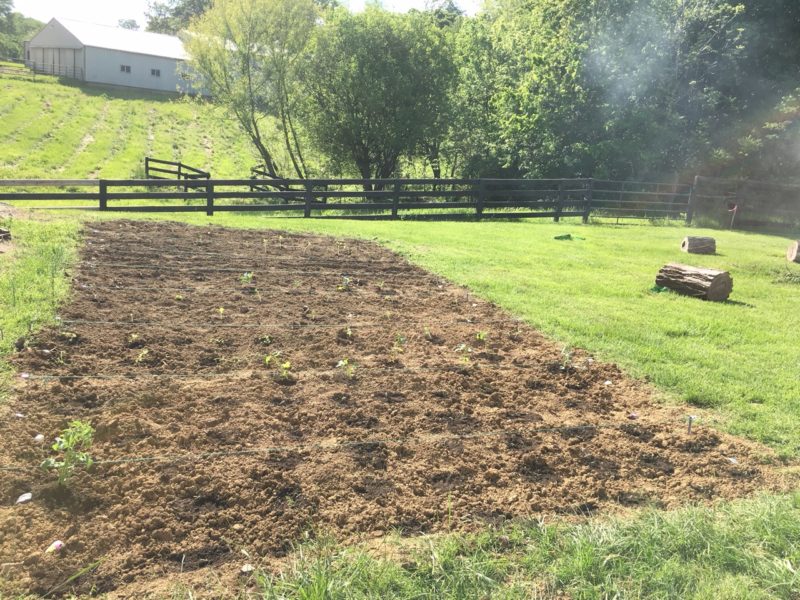
Plants transplanted into the garden
The biggest lesson I learned was that weeding a large garden is much more difficult than a few raised beds filled with topsoil. At the advice of my sister, last year I placed newspaper and straw down after planting and it made a huge difference with excessive weeds. We enjoyed an abundance of baby romaine lettuce (we’re big salad eaters), some stir fry broccoli (delicious right off the stock), tomatoes, tomatillos, bell peppers, jalapeños, sweet potatoes, broccoli, brussel sprouts, carrots, lettuces, cucumbers, corn, and onions. We canned homemade salsa and pickles to enjoy throug the rest of the year. A definite progression from those 3 tomato plants we established at our first house.
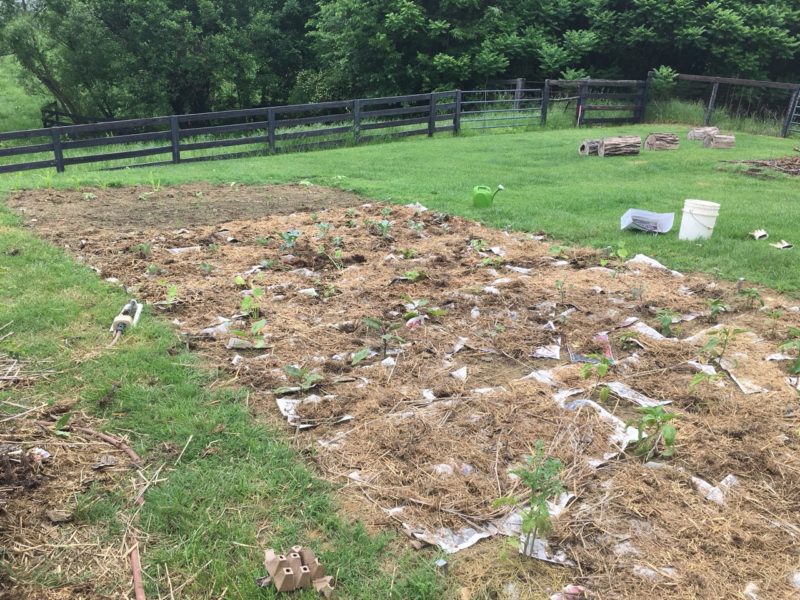
We covered the garden with newspaper and straw to prevent weeds from overtaking
This year I didn’t start any seeds. With the arrival of our 4th baby in February, what energy I had after sleep deprivation and caring for our other 3 children was not going to be spent on babying starter seeds in what I’m quite certain was the longest winter in recorded history. Now May is here and we’re getting ready to till the dirt and put plants in the ground. My hope is this encourages you to plant something this year and experience the joy of eating something you grow. There’s no comparison eating a store-bought tomato from a vine ripe one picked from your backyard, the taste difference will blow you away. It doesn’t have to be a big garden, remember we’re 9 years into this process. But grab a few plants and stick them in the ground. You could even do a large planter bowl. Maybe start with a few herbs. I challenge you to try something this year.
I am by no means an expert, but here are a few tips for beginning vegetable gardeners.
1. Start small. If you plant too much it easily becomes overwhelming. Yes, some plants are easy and fun but when you end up with 20 zucchini a week you can barely give it away and become tired of “100 ways to eat squash and zucchini.” Plant one or two things you know you will eat- tomatoes or squash are great starters for novel gardeners- and just a couple plants of each. If it dies, oh well, just head to the local farmers market or grab one from your neighbor who planted too much. Each year add a few things in your garden. My goal is to plant just enough to eat or preserve everything we harvest, and a few extra for family and neighbors. I am still developing this skill, as evidenced by the roughly 50 cucumbers we picked on a single day last year. Pickles anyone?
2. Get a sprinkler. We used to unwind the hose, stand and water the garden beds for 15 minutes, wind the hose back in, and eventually watering became frustrating and inconsistent. We finally picked up an oscillating sprinkler and now have it hooked to a water pump with a timer, so no forgetting to shut it off. Anything that makes your job easier will increase your compliance to maintaining a productive garden.
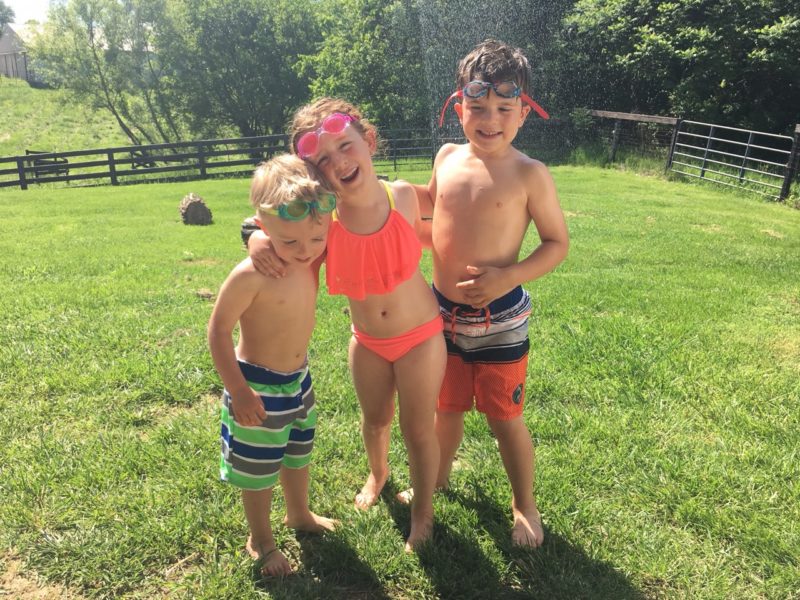
We got a lot of use from the sprinkler
3. Herbs are a great place to start. For the most part, herbs are easy, they can actually take over. I use large pots to contain them. We use basil, rosemary and green onions the most. This year we also have rosemary, thyme, sage, and cilantro (i’ve always found cilantro to be a little finicky). Herbs can completely transform your cooking. A little sage in you burgers, rosemary on your chicken, or basil on some fresh homemade bruschetta will make you feel like a gourmet chef.
3. Plant foods you know you’ll eat. Okra is a popular vegetable that almost everyone with a big garden grows because it’s easy and bountiful. but I don’t eat okra often (unless it’s fried- in which case I let my sister grow it and fry it on special occasions- delish! ) and neither does my family. Don’t plant things you know you won’t eat.
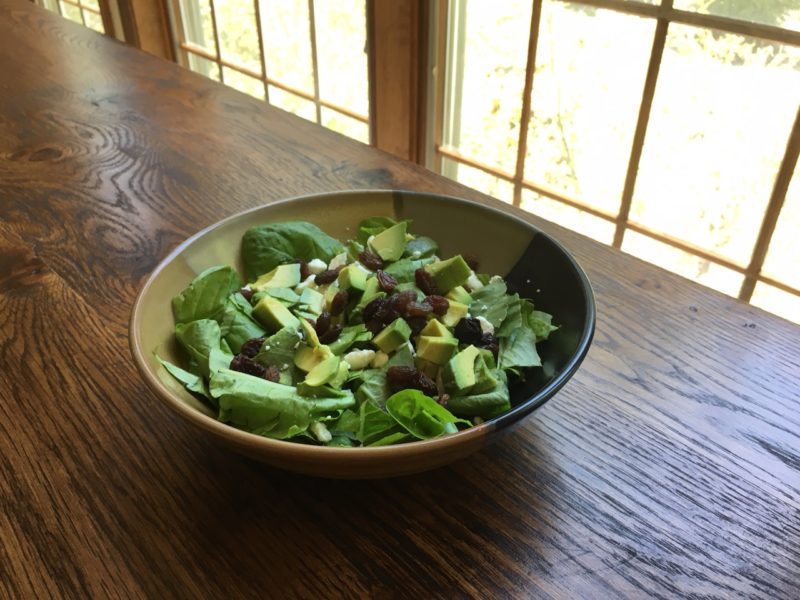
We love grabbing lettuce from the garden for a fresh salad
4. Learn multiple ways to cook vegetables so you don’t get bored. I can’t stand when people say “I hate (insert vegetable)”, or worse, “I don’t like vegetables.” There are a million different vegetables and a million different ways to prepare each one. I hated cooked carrots as a child, so much It was years before I would try them again. I still don’t like the taste of plain, boiled carrots but I recently had fresh carrots braised with a little oil, butter, and honey and it blew my taste buds away. Taste and textures change completely depending on how vegetables are prepared. This is especially important for kids if they don’t like something encourage them to try it prepared differently so they don’t engrave it on their “I don’t like” list permanently.
5. Find an experienced gardener or farmer for support. I’ve relied heavily on the knowledge from my sister and other experienced gardeners in the area.
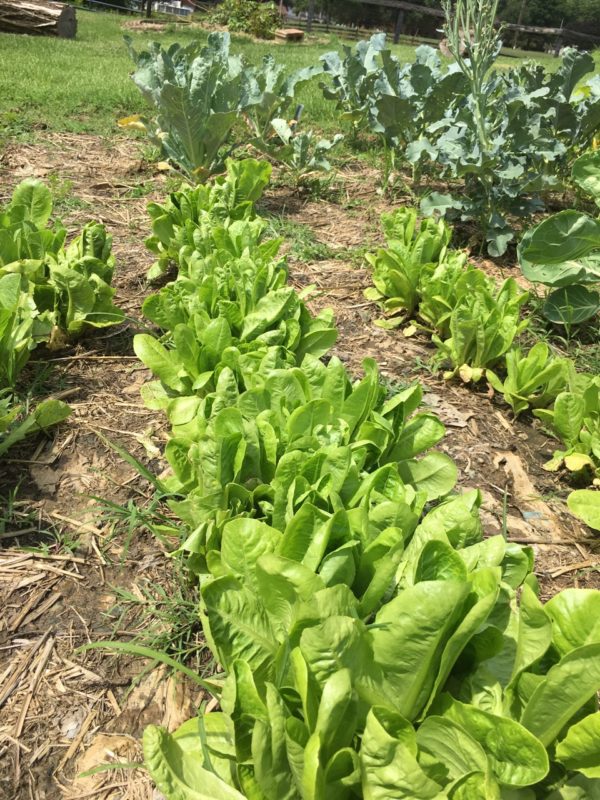
Baby romaine lettuce from our garden
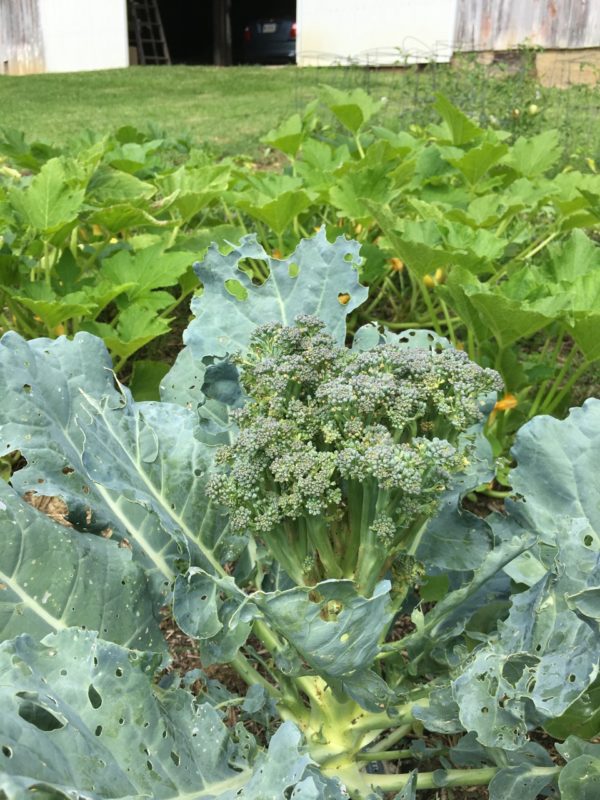
Broccoli from our vegetable garden



